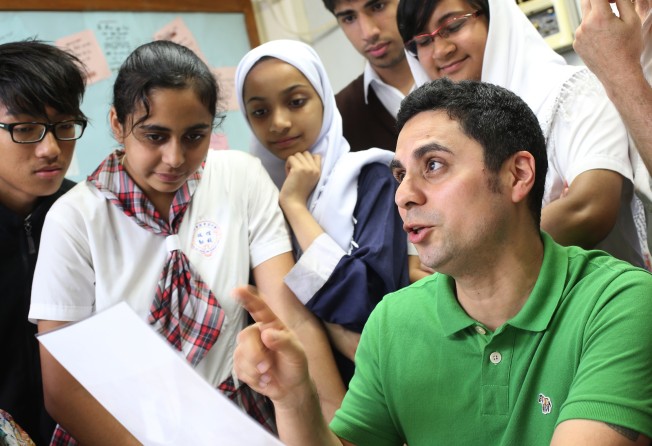Ethnic minority children stereotyped and belittled in Hong Kong schools, say parents
Teaching Chinese to ethnic-minority children is not enough, some parents and educators say

Tanya Hart was surprised to learn that her seven-year-old son, Sam, was never asked about his culture and background by teachers at his local school.
And she was in for an even bigger shock when she asked teachers why they did not think Sam’s Korean, Australian and European ancestry was worthy of discussion. She was told the children, most of whom are Chinese, studied “multiculturalism” only in Primary Four.
“But you have all these multicultural kids in your class from Primary One to Primary Six,” she laughs. “So in Primary Four you’re multicultural and in Primary Five you stop again?”
While much of the debate on the education of minority children has focused on their struggle to learn Chinese – the government is to introduce Chinese-language lessons from September – some parents and educators believe language is only part of the problem.
Hart believes many ethnic minority children in Hong Kong feel their cultural background is being ignored, stereotyped or seen as a barrier for integration, when in fact exploring their cultures could enrich the education of all pupils.
Her concerns are shared by many ethnic-minority parents whose children enter the public school system because they choose not to or cannot afford to send them to international or English Schools Foundation schools. She says teachers know little of their non-Chinese pupils’ culture, belittle their languages and can be too keen to stick only to the curriculum and textbooks.
“Why would you buy a book about lives in foreign countries … when you have somebody who knows deeply about another culture?” asks Hart. “Local schools don’t see non-local kids as a resource but as a problem getting in the way of integration.”
Carlos Soto, an English teacher at CMA Choi Cheung Kok Secondary School in Tuen Mun is taking matters into his own hands. Teachers at the school, many of whom are from ethnic minorities, are taking the initiative to teach their cultures.
Until last year, the school was one of 31 “designated schools” to which most non-Chinese-speaking pupils were allocated. While the “designated” label has gone, many pupils are from South and Southeast Asian backgrounds – in many cases their families have lived in the city for generations.
“There’s a problem [among ethnic minority children] of identity,” says Soto, who was born in Honduras and worked with minority children in the United States for a decade before moving to the city in 2009 to study for a doctorate in education.
Mohammad Lafaran Ali, a Pakistani teaching assistant, said many minority children dropped out of classes because they felt teachers did not understand their culture and religion.
Soto says non-Chinese speaking children are often stereotyped in the local curriculum. A guidebook for the Diploma of Secondary Education’s liberal studies exams says ethnic-minority children suffer in Hong Kong and have problems becoming part of the community as they do not know Chinese, he says.
“And that’s it. That’s all you need to know about ethnic minorities, according to this guide,” says Soto.
He believes officials, academics and social workers have endlessly reinforced this stereotype, meaning resources are poured into Chinese teaching instead of designing a curriculum that can identify, appreciate and develop the individual child’s talents.
Soto tries to challenge pupils to think differently. He and like-minded colleagues invite people from different cultural backgrounds to speak to the pupils, take the children on visits in Hong Kong and beyond and to universities. They also watch Bollywood films, read a variety of stories and write their own thoughts.
His pupils, who find other classes boring because their teachers only follow the textbooks, say they love his classes.
Carmen Leung Ka-man, a teacher who works with Soto, said local teachers did care about minority pupils, but often struggled to find a suitable approach to educating them, as they had been taught in a particular way.
Soto sees a need for the kind of multicultural approach used in ESF and international schools in non-elite local schools. And that means recruiting teachers with different training.
“We just want to be able to bring that kind of learning very privileged students can receive in Hong Kong to common schools where poor students can benefit from it,” he says.